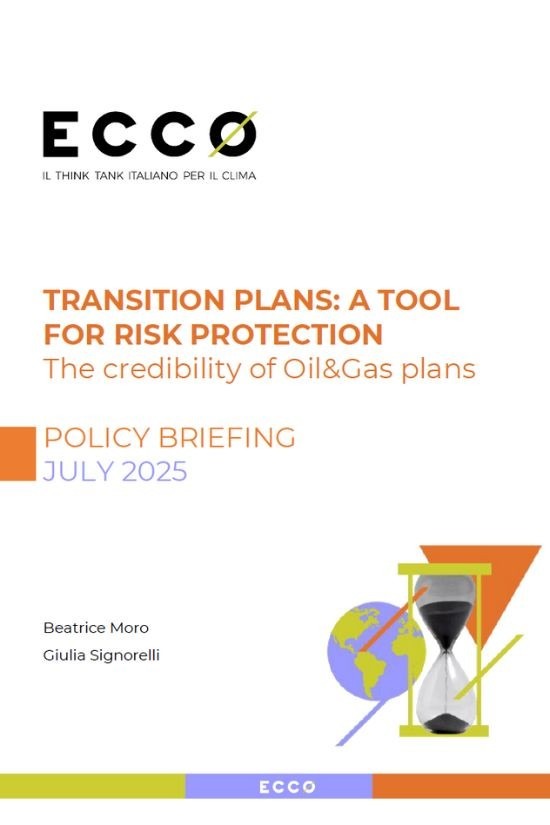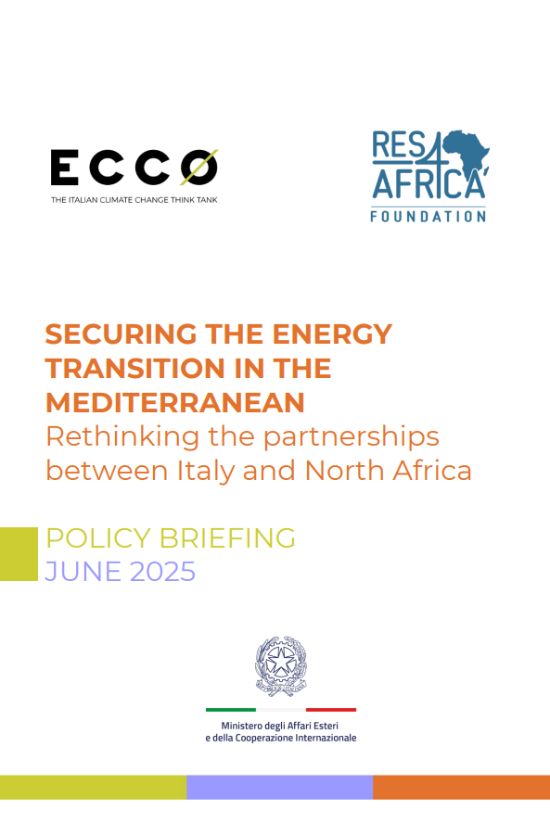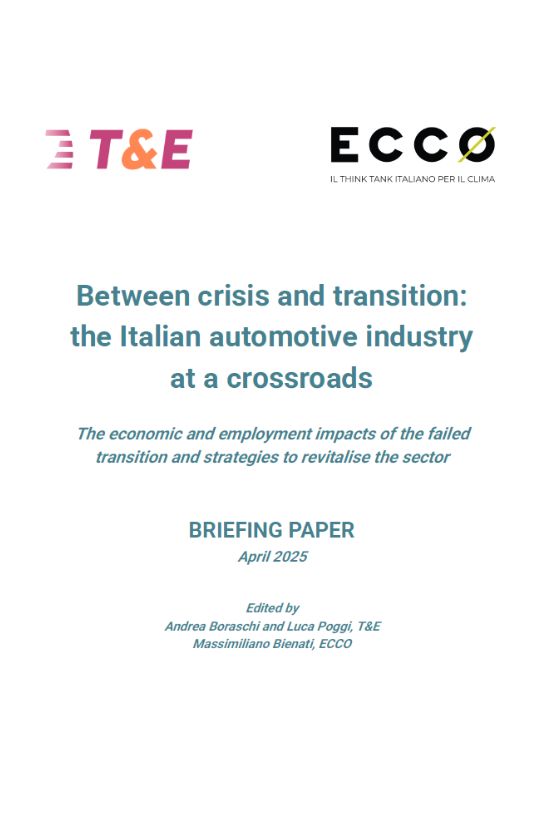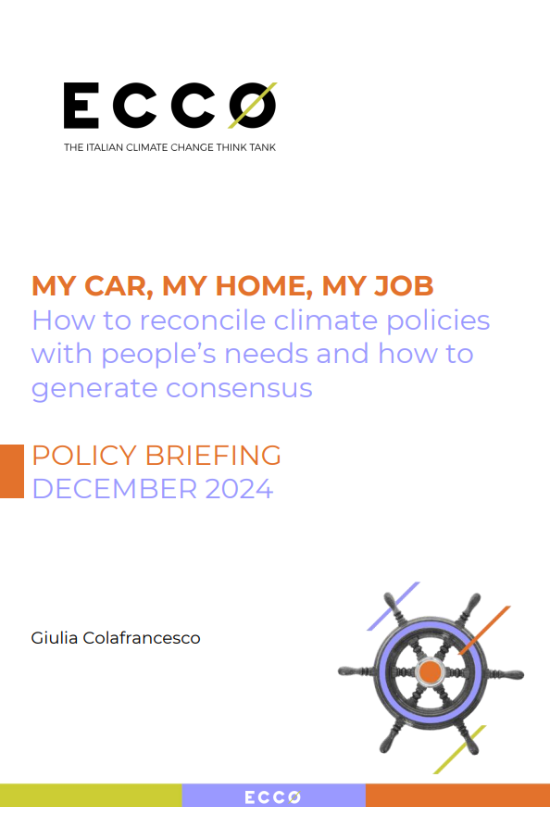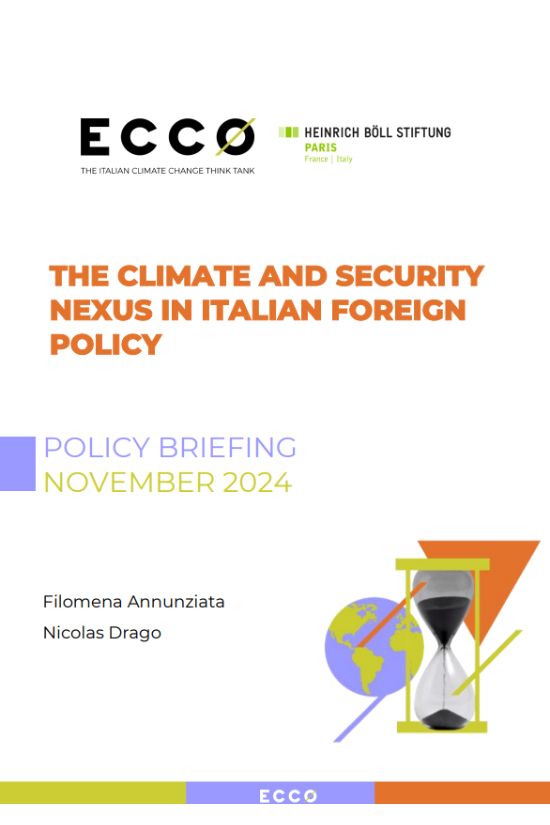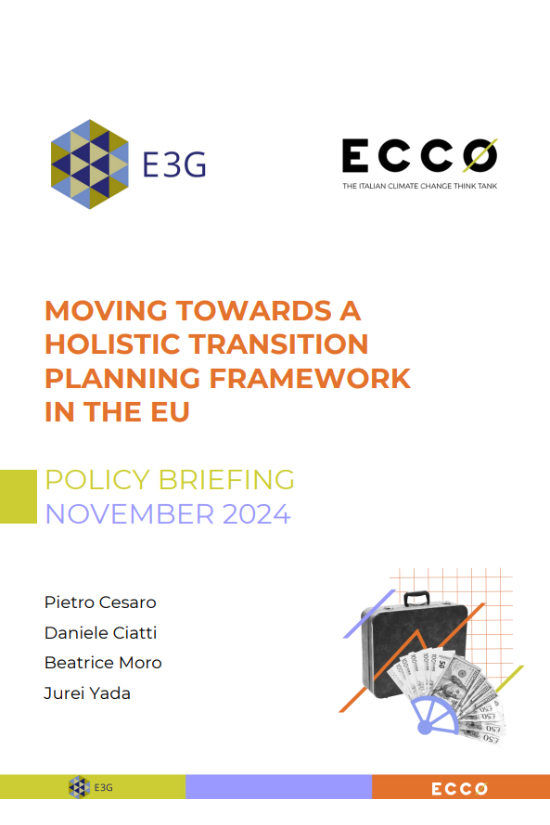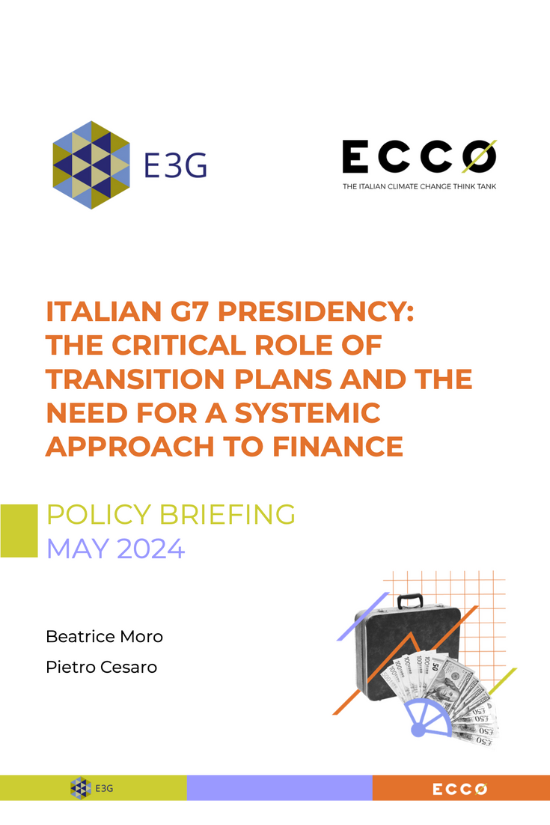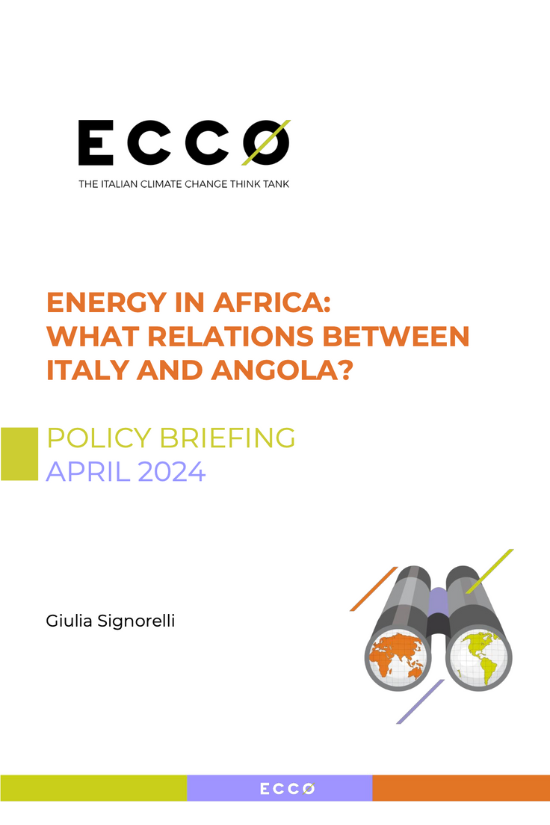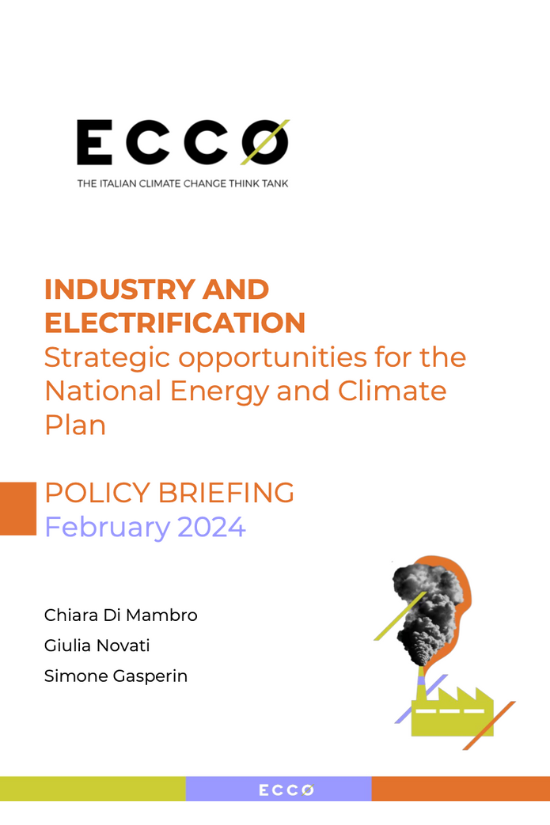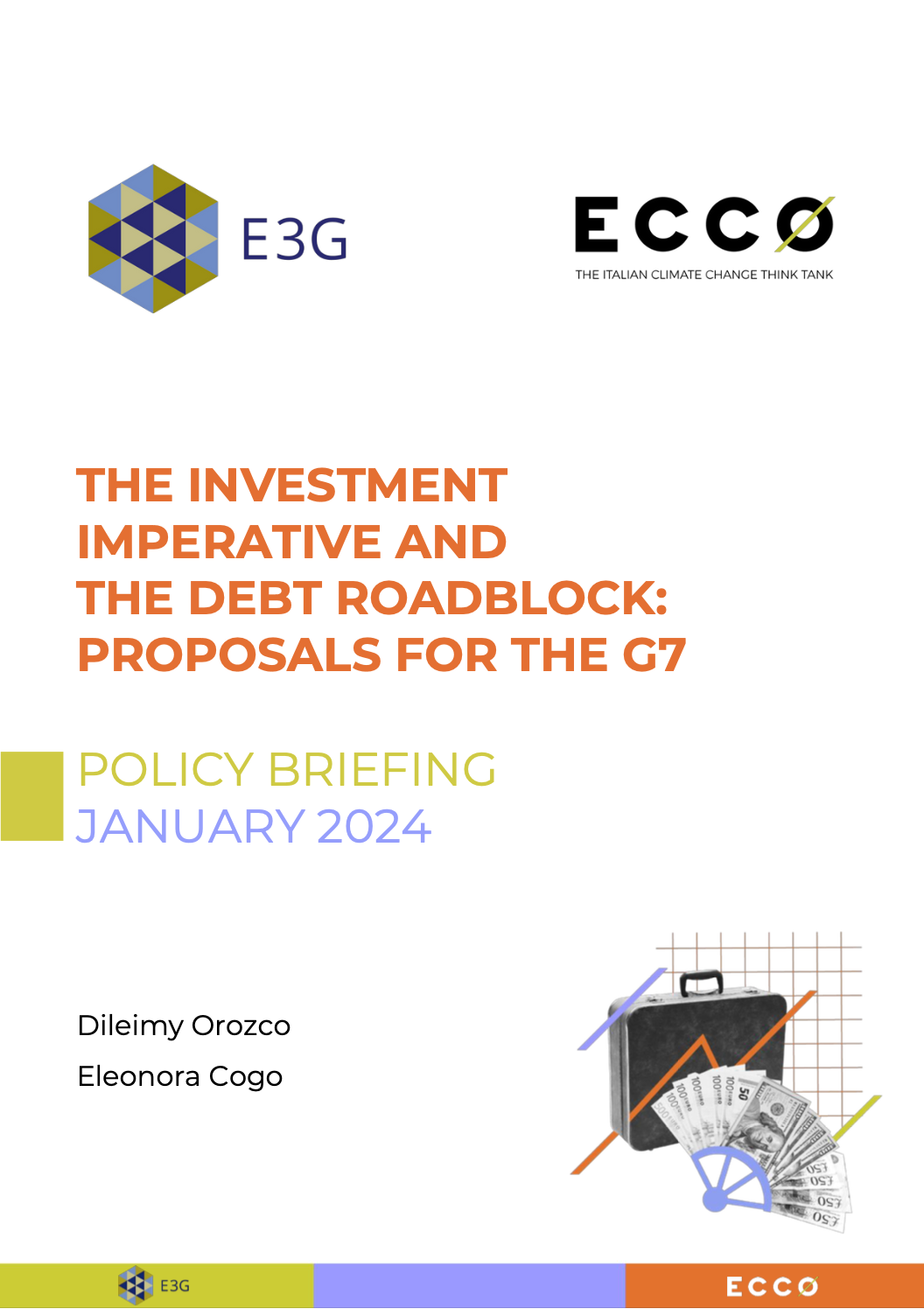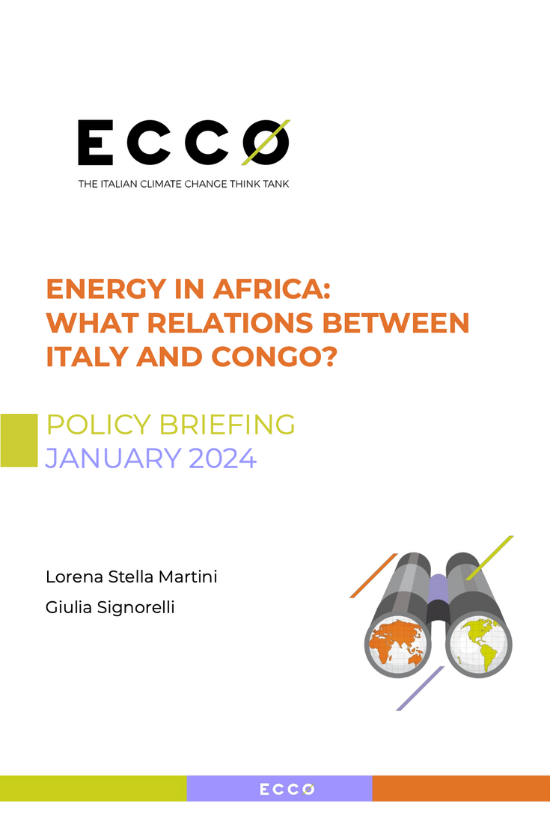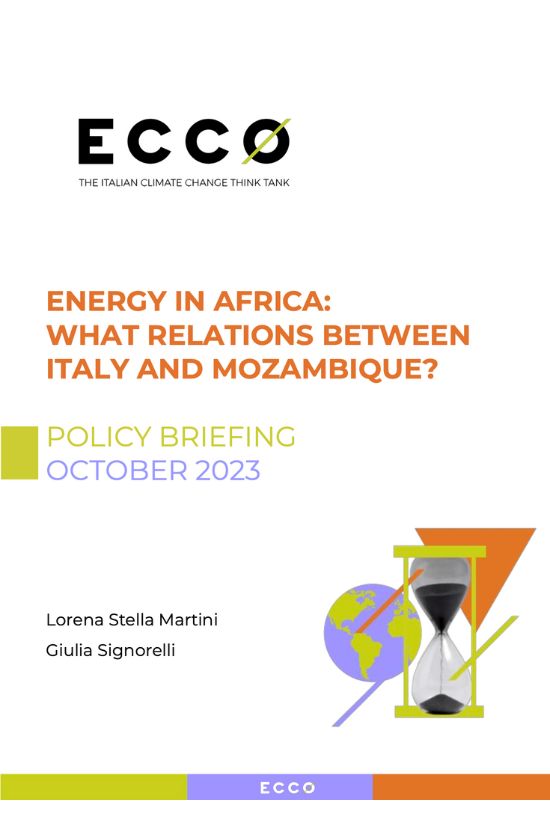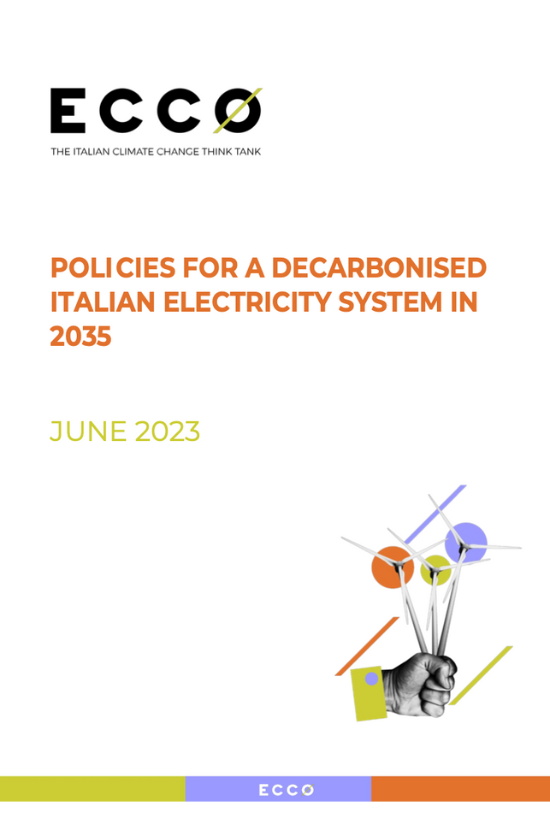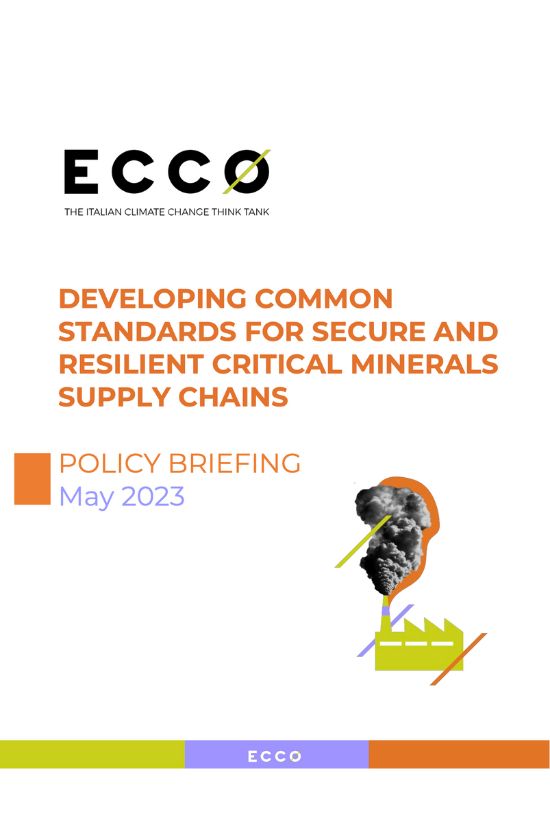Publications
Search
Filters
Authors
/ Alexandra Scott
/ Andrea Ghianda
/ Annalisa Perteghella
/ Beatrice Moro
/ Carolina Bedocchi
/ Caterina Molinari
/ Chiara Di Mambro
/ Chiara Mariotti
/ Chloe Pagliaro
/ Costanza Scano
/ Davide Panzeri
/ ECCO think thank
/ Eleonora Cogo
/ Federico Tassan-Viol
/ Filomena Annunziata
/ Francesca Andreolli
/ Francesca Bellisai
/ Gabriele Cassetti
/ Giovanni D'Amico
/ Giulia Colafrancesco
/ Giulia Giordano
/ Giulia Novati
/ Giulia Signorelli
/ Ilaria Mazzocco
/ Lorena Stella Martini
/ Luca Bergamaschi
/ Luca Iacoboni
/ Mario Noera
/ Marta Lovisolo
/ Massimiliano Bienati
/ Matteo Leonardi
/ Matteo Viola
/ Michele Governatori
/ Nicolas Drago
The Transition Plans published by Italy’s leading oil and gas companies exhibit significant shortcomings, particularly in the quantitative analysis of risks, the planned reduction in hydrocarbon production, and transparency around geographic and regulatory dependencies. For these plans to be credible, they must go beyond simple reporting, incorporating rigorous analysis and a clear governance strategy that reduces uncertainty and decisively channels investment toward truly sustainable solutions.
This policy brief explores the evolving nexus between energy security and energy transition within Italy’s foreign policy towards North Africa, providing recommendations on how Italy can play a leading role – including at a European level – in promoting the energy transition in the Mediterranean region through its relations with North African countries, both at a bilateral and multilateral level.
The global automotive market is accelerating towards electric mobility, redefining the competitive dynamics of the sector. A new study commissioned by ECCO and T&E Italia to a group of professors and researchers from the Scuola Superiore Sant’Anna in Pisa and the Enrico Fermi Research Centre in Rome analysed the economic and employment impacts on the national automotive industry of the failure to transition to electric mobility.
Decarbonising our economies to face the threat of climate change is not an easy task, but we cannot shy away from tackling distributional issues and inequality. A political strategy is necessary to smoothly guide people when faced with the high costs of the transition, a tight timeframe and other barriers. This policy brief serves as a first contribution to finding the right tools to interpret the needs of our society and solve its structural problems along the process of transitioning away from fossil fuels.
The Sixth Assessment Report of the Intergovernmental Panel on Climate Change (IPCC) describes the Mediterranean as a climate change hotspot. Despite relatively low levels of greenhouse gas (GHG) emissions, the effects of global warming are felt more rapidly in this region than anywhere else in the world, with temperatures expected to rise by 20% above the global average.
This briefing, authored by ECCO and E3G, takes stock of the EU transition planning framework initiatives and calls for a systemic approach – moving towards a simple and holistic transition planning framework that aligns various governance systems and policy tools within the EU, while ensuring consistency with international climate goals such as the Paris Agreement.
G7 finance and climate tracks should align their strategy, find a common position and support a systemic approach to defining and financing national transition plans. Such a systemic approach developed by G7 is critical to give confidence, build trust and inform next set of finance and climate decisions at COP29 and COP30 on the New Collective Quantified Goal on Climate Finance (NCQG) and the Nationally Determined Contributions (NDCs).
Given the imperative to mobilize private investment at the scale required to address climate change, the effective deployment of funding, policies, and frameworks becomes paramount. In this context, it is imperative to place Transition Plans (TPs) at the heart of the G7 finance agenda as primary tools to re-orient and re-design private and public choices towards resilient and sustainable economic systems.
The Mattei Plan offers an opportunity to redefine a new partnership with Angola. However, a partnership based on the exploitation of fossil fuels is not only not economically viable in view of a declining Italian and European demand for oil and gas according to all scenarios, but it is also on a collision course with market trends.
The significant contribution to national emissions by the manufacturing sector depends on its reliance on the use of fossil fuels for energy purposes, as well as on emissions that are inherent in certain production processes (e.g. cement, chemicals, etc.). Framing the country’s industrial development prospects within the path of reducing greenhouse gas emissions represents a strategic opportunity. The definition of the National Energy and Climate Plan (NECP) due by next June, is a unique opportunity for action.
This policy briefing, prepared by ECCO and E3G, examines the relationship between debt and climate at a pivotal moment for transforming the international financial architecture and for ensuring finance flows towards climate growth opportunities. Italy can play a key role in shaping a more resilient and sustainable future for Africa through both its G7 Presidency and the Mattei Plan.
An Italy-Congo partnership based on the exploitation of fossil fuels is not the best investment for the country’s economy, as it fuels a vicious cycle of debt, poverty, inequality and corruption and lack of diversification. For Italy, such partnership is not only unprofitable in the face of a declining gas demand under all scenarios, but it would also collide with market new interests. Insisting on gas in the Italy-Congo relationship increasingly ties Italy’s foreign policy to gas policy, and away from its climate commitments.
The revival of relations between Italy and African countries needs to be contextualized within a framework of renewed interest in the African continent. In this framework, the Meloni government is working on a new strategic project for Africa, known as “Mattei Plan”, which aims at establishing equal and mutually beneficial relations with African partners, in a “non-predatory” context. Against this backdrop, Mozambique represents an extremely relevant partner for Rome, drawing on solid relations at both a governmental and civil society level.
The project aims to show the production technology, enabling technology and enabling policies required to comply with Italian energy regulations that an essentially decarbonised electricity system in 2035 will need to have in place in 2030 and 2035. The system will be the most economical of all those guaranteeing decarbonisation and security while complying with certain hypotheses.
The increasing production and the pace of penetration of clean technologies required to a radical transformation of the global energy system critically depend on the availability of critical minerals.
The high geographic fragmentation of mining activities and the Asian dominance in the processing and refining stages of critical minerals require a progressive diversifying, reshaping and strengthening of the global supply chain structure in order to manage supply risks.
The Transition Plans published by Italy’s leading oil and gas companies exhibit significant shortcomings, particularly in the quantitative analysis of risks, the planned reduction in hydrocarbon production, and transparency around geographic and regulatory dependencies. For these plans to be credible, they must go beyond simple reporting, incorporating rigorous analysis and a clear governance strategy that reduces uncertainty and decisively channels investment toward truly sustainable solutions.
This policy brief explores the evolving nexus between energy security and energy transition within Italy’s foreign policy towards North Africa, providing recommendations on how Italy can play a leading role – including at a European level – in promoting the energy transition in the Mediterranean region through its relations with North African countries, both at a bilateral and multilateral level.
The global automotive market is accelerating towards electric mobility, redefining the competitive dynamics of the sector. A new study commissioned by ECCO and T&E Italia to a group of professors and researchers from the Scuola Superiore Sant’Anna in Pisa and the Enrico Fermi Research Centre in Rome analysed the economic and employment impacts on the national automotive industry of the failure to transition to electric mobility.
Decarbonising our economies to face the threat of climate change is not an easy task, but we cannot shy away from tackling distributional issues and inequality. A political strategy is necessary to smoothly guide people when faced with the high costs of the transition, a tight timeframe and other barriers. This policy brief serves as a first contribution to finding the right tools to interpret the needs of our society and solve its structural problems along the process of transitioning away from fossil fuels.
The Sixth Assessment Report of the Intergovernmental Panel on Climate Change (IPCC) describes the Mediterranean as a climate change hotspot. Despite relatively low levels of greenhouse gas (GHG) emissions, the effects of global warming are felt more rapidly in this region than anywhere else in the world, with temperatures expected to rise by 20% above the global average.
This briefing, authored by ECCO and E3G, takes stock of the EU transition planning framework initiatives and calls for a systemic approach – moving towards a simple and holistic transition planning framework that aligns various governance systems and policy tools within the EU, while ensuring consistency with international climate goals such as the Paris Agreement.
G7 finance and climate tracks should align their strategy, find a common position and support a systemic approach to defining and financing national transition plans. Such a systemic approach developed by G7 is critical to give confidence, build trust and inform next set of finance and climate decisions at COP29 and COP30 on the New Collective Quantified Goal on Climate Finance (NCQG) and the Nationally Determined Contributions (NDCs).
Given the imperative to mobilize private investment at the scale required to address climate change, the effective deployment of funding, policies, and frameworks becomes paramount. In this context, it is imperative to place Transition Plans (TPs) at the heart of the G7 finance agenda as primary tools to re-orient and re-design private and public choices towards resilient and sustainable economic systems.
The Mattei Plan offers an opportunity to redefine a new partnership with Angola. However, a partnership based on the exploitation of fossil fuels is not only not economically viable in view of a declining Italian and European demand for oil and gas according to all scenarios, but it is also on a collision course with market trends.
The significant contribution to national emissions by the manufacturing sector depends on its reliance on the use of fossil fuels for energy purposes, as well as on emissions that are inherent in certain production processes (e.g. cement, chemicals, etc.). Framing the country’s industrial development prospects within the path of reducing greenhouse gas emissions represents a strategic opportunity. The definition of the National Energy and Climate Plan (NECP) due by next June, is a unique opportunity for action.
This policy briefing, prepared by ECCO and E3G, examines the relationship between debt and climate at a pivotal moment for transforming the international financial architecture and for ensuring finance flows towards climate growth opportunities. Italy can play a key role in shaping a more resilient and sustainable future for Africa through both its G7 Presidency and the Mattei Plan.
An Italy-Congo partnership based on the exploitation of fossil fuels is not the best investment for the country’s economy, as it fuels a vicious cycle of debt, poverty, inequality and corruption and lack of diversification. For Italy, such partnership is not only unprofitable in the face of a declining gas demand under all scenarios, but it would also collide with market new interests. Insisting on gas in the Italy-Congo relationship increasingly ties Italy’s foreign policy to gas policy, and away from its climate commitments.
The revival of relations between Italy and African countries needs to be contextualized within a framework of renewed interest in the African continent. In this framework, the Meloni government is working on a new strategic project for Africa, known as “Mattei Plan”, which aims at establishing equal and mutually beneficial relations with African partners, in a “non-predatory” context. Against this backdrop, Mozambique represents an extremely relevant partner for Rome, drawing on solid relations at both a governmental and civil society level.
The project aims to show the production technology, enabling technology and enabling policies required to comply with Italian energy regulations that an essentially decarbonised electricity system in 2035 will need to have in place in 2030 and 2035. The system will be the most economical of all those guaranteeing decarbonisation and security while complying with certain hypotheses.
The increasing production and the pace of penetration of clean technologies required to a radical transformation of the global energy system critically depend on the availability of critical minerals.
The high geographic fragmentation of mining activities and the Asian dominance in the processing and refining stages of critical minerals require a progressive diversifying, reshaping and strengthening of the global supply chain structure in order to manage supply risks.
